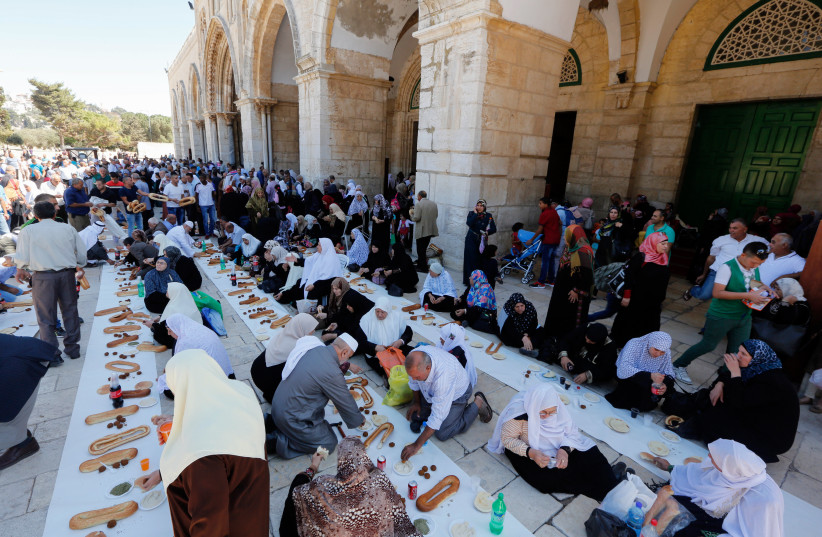Eid al-Adha is set to begin on Wednesday morning, with Muslims around the world preparing to mark the Feast of the Sacrifice.
The holiday, which lasts up to four days depending on the country, commemorates Abraham's willingness to sacrifice his son, Ismail, and the sacrifice of a ram in his place. The story of the sacrifice is related in Surah As-Saffat, the 37th chapter of the Koran and is parallel to the story of the "Akeidah" in Judaism in which Isaac was the son in the story instead of Ismail.
On Eid, Muslims slaughter an animal (an act referred to as "qurbani," similar to the Hebrew word "korban") after the Eid prayer, which is conducted after sunrise but before the Dhuhr prayer (around noon), and share the meat with family, friends, and those in need. Strict rules are followed concerning the animals that are permitted for slaughter.
Eid al-Adha takes place on the third day of the Hajj pilgrimage to Mecca which every Muslim is required to conduct at least once in their lifetime.
The day before the Eid is known as the Day of Arafah, when pilgrims gather at the mountain plain of Arafat, southeast of Mecca, and offer supplications and repent for past sins. Practices on the day include fasting, giving charity, and increasing acts of worship.

Israeli Foreign Minister Eli Cohen wished Muslim and Druze residents an "Eid Mubarak," tweeting "I extend heartfelt wishes for a blessed Eid al-Adha. May this festive occasion bring joy, unity, and abundant blessings to your lives. Let us embrace diversity, strengthen ties, and work together towards a future of peace and prosperity."
President Isaac Herzog on Tuesday telephoned Palestinian Authority President Mahmoud Abbas to wish him, his people and all Muslims in the region a happy Eid al-Adha.
Israel's Muslim community in the past year
Ahead of Eid al-Adha, Israel's Central Bureau of Statistics published data about the Muslim community in Israel.
As of the end of 2022, there were 1.75 million Muslims living in Israel, 18.1% of the total population of the country. The number marks an increase of about 36.8 thousand people since the end of 2021.
Jerusalem has the largest Muslim population in Israel, with 371,000 Muslims calling the city home. The Muslim population in the city makes up 21.2% of the Muslim community in Israel and 37.9% of the city's total population. The city with the second largest Muslim population is Rahat, where 78.5 thousand Muslims live, making up 99.7% of the city.
About half of the Muslim population in Israel lives in the north of the country, 17.9% live in the south, and 10.8% live in the center.
CBS noted that the Muslim population is largely made up of youth, with 1 to 14-year-olds making 32.2% of the community and only 4.7% being above the age of 65.
About a quarter of households headed by Muslims have six members or more, compared to just 9% of Jewish-headed households.
In the 2021-2022 school year, 396,106 Muslim students learned in elementary and high schools in Israel.
41.1% of Muslim women began studying for a bachelor's degree within eight years of finishing high school, double the percentage of Muslim men (20.1%). 10.3 thousand Muslims received a degree from a higher education institution in the 2021-2022 school year, making up 11.7% of all students to receive a degree that year.
